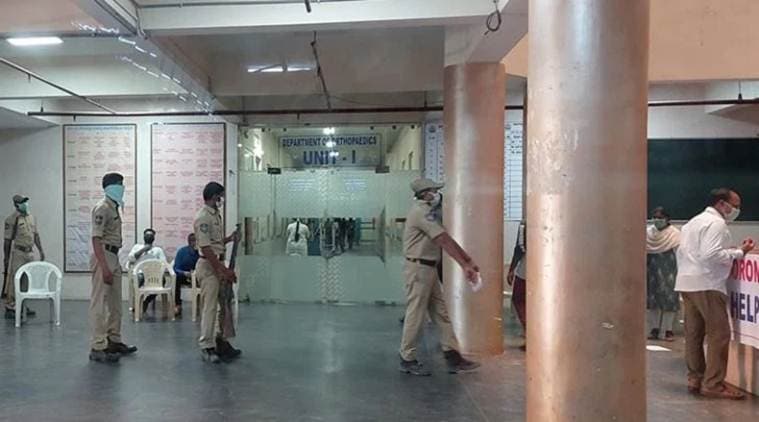 By the Supreme Court’s own admission, prisons are overcrowded and potential hotbeds of COVID-19. (File)
By the Supreme Court’s own admission, prisons are overcrowded and potential hotbeds of COVID-19. (File)
On June 15, a 62-year-old man died of COVID-19 in the senior citizen barracks in a Delhi prison in Mandoli. Twenty-two inmates tested positive thereafter. One positive inmate’s bail application, moved while he was in ICU, was denied. Several ailing or elderly undertrials are denied bail due to the gravity of their offence, as the contagion reportedly sweeps through several prisons. Yet undertrials account for nearly 70 per cent of India’s prison population.
By the Supreme Court’s own admission, prisons are overcrowded and potential hotbeds of COVID-19. High Power Committees (HPC) created in each state interpreted the SC’s orders as a direction for creating a classification on the basis of offence and sentence. These HPCs have not adopted a prisoner-centric approach even towards terminally ill, pregnant and lactating women, foreigners, the elderly or disabled, or the undertrials who are in prison for years. In Delhi, all foreigners, who are largely South Asians and Blacks, are excluded from the HPC’s classification as deserving of interim bail, irrespective of offence or sentence, even though Article 21 protects all persons. Nor are women treated as a class.
From news reports, we know that at least two pregnant inmates were in Delhi prisons, and eight in Maharashtra prisons. A pregnant inmate in a Thane jail was infected by COVID-19. Yet, pregnant and lactating women inmates are not treated as a class deserving preferential treatment by the HPC. We might do well to remember the abject loss faced by a woman undertrial in 2011. Tanuja Gnanadurai alias Sonia Mann was coerced to undergo a premature delivery in the prison, and her baby died of injury from an unassisted delivery. This inhuman and cruel treatment has not been accounted for in our legal history.
In Delhi, Safoora Zargar was given bail on humanitarian grounds, on the condition that this should not be considered a precedent, after the state opposed her bail three times. This was a welcome concession even if humanity towards all pregnant inmates was not held to be a legal precedent. Yet it is this government’s own Ministry of Women and Child Development which recommended in 2018 that, “pregnant women should be given bail to facilitate childbirth outside the prison”. The National Commission of Women’s advisory (2020) recommended that women undertrials who are charged with life or death should also be given bail.
Custodial childbirth and incarcerated pregnancy is a specific form of cruel, inhuman and degrading punishment. It is harm inflicted on women as women. Hence, imprisoning women under trials also violates Rule 24 of the UN’s Rules for the Treatment of Women Prisoners, which holds that, “non-custodial means should be preferred for pregnant women during the pre-trial phase”.
The application of the Disaster Management Act, 2005 (DMA) means that Section 61 is operative. It says, “while providing compensation and relief to the victims of disaster, there shall be no discrimination on the ground of sex, caste, community, descent or religion”. Prisons are “affected areas”, and relief and compensation to prisoners is a statutory obligation. The HPC classification needs urgent review to ensure there is no discrimination as per the DMA. Women, children, senior citizens, gender and sexual minorities, Dalits, religious minorities and the disabled must be treated as custodial minorities. Strangely, the government’s COVID policy that specifically identifies senior citizens, the co-morbid, pregnant, lactating women as high-risk populations is silent on prison inmates.
Is the disaster law only meant to arrest and incarcerate scores of people under Sections 51 to 60 of the DMA, read with Section 188 of the IPC? Must the rights framework that limits state excess and binds state action be suspended? In violation of the non-discrimination clause of the disaster law, many undertrials are constructed as “undeserving” and condemned to inhuman, cruel and degrading treatment. A moratorium should be pronounced on fresh arrests, remand and custodial measures to ensure that jail is truly the exception for undertrials.
Baxi is associate professor, Centre for the Study of Law and Governance, JNU, and Singh is a Delhi-based feminist researcher